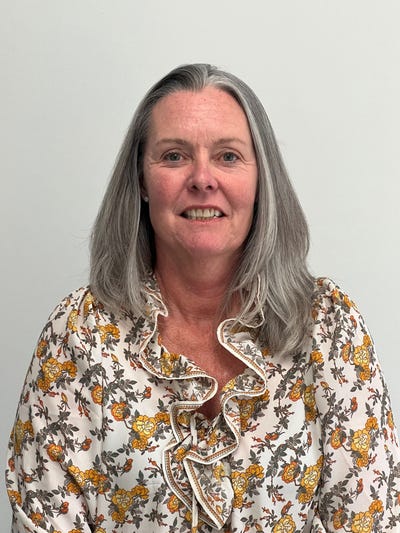Chiesi’s partnering success: Confessions of a mid-sized pharmaChiesi’s partnering success: Confessions of a mid-sized pharma
Chiesi Group’s SVP tells BioXconomy how this Italian family-owned company has navigated global expansions, developed strategic partnerships, and developed sustainable business practices.
November 14, 2024

Italian family-owned pharma company Chiesi, founded and headquartered in Parma, Italy 89 years ago, has transformed itself from a regional player to global contender over the past few years.
In 2016, when senior vice president and head of global business and development Stefano Cottignoli joined the company, revenues sat at €1.6 billion ($1.73 billion). Last year, the company reported sales of €3.1 billion, a more than 100% increase. Cottignoli attributed this to Chiesi’s strategy of focusing on a triumvirate of therapeutic areas – “Air, Care, and Rare” (a.k.a. respiratory, specialty care, and rare diseases) – through a commitment to innovation through a combination of R&D (reinvesting 24% of its sales into R&D in 2023) and business development/M&A (seven new global deals closed from Jan 2023 until today, including the acquisition of Amryt, the largest in the group history with total transaction value of $1,48B between upfront and contingent value right payments).
This is supported through an ever-increasing global footprint. Chiesi’s headquarters in Parma also house R&D and manufacturing operations, and earlier this year the site saw an investment of €400 million to establish a Biotech Center of Excellence aimed at developing and producing monoclonal antibodies (mAbs, enzymes, and other proteins). And outside its native Italy, R&D centers in France, the US, Canada, China, the UK, and Sweden help promote its preclinical, clinical, and regulatory programs. Production, meanwhile, also takes place across plants located in, Blois (France), and Santana de Parnaíba (Brazil).
The firm now has a commercial presence in 31 countries through affiliates. This includes key markets such as the US and China, and a recent move into Japan marks another milestone in Chiesi's international growth.
Family-focus and sustainability
It is Chiesi's status as a family-owned company that has significantly influenced this growth and its general business approach, Cottignoli told BioXconomy. “When you are in a family-owned business... you think about the next generation, not just about the next year.”
This long-term outlook may not yield immediate returns, but it is crucial for the company's sustained growth and impact, he said. It also allows the company to maintain a consistent growth trajectory, avoiding the ups and downs often seen at publicly traded pharmaceutical companies.
Cottignoli also highlighted Chiesi's position in the pharma industry as being a Benefit Corporation with B Corp certification. The concept, which has roots going back a century, posits a company's purpose should extend beyond serving shareholders to include wider stakeholders. “In our case, the stakeholders are certainly the patients that we serve, the communities where we operate in and the planet, because all these elements are interconnected.” This model also applies to the company’s decision-making, he added, with decisions at Chiesi made with the patient and wider community in mind. This “is probably more challenging but I think more impactful.”
An example is Chiesi's recent investment in developing a more environmentally friendly inhaler for its respiratory products: The firm has pumped €350 million into developing a platform of carbon minimal pressurized metered-dose inhaler (pMDI) products. While the decision has a clear business rationale, it also aligns with the company's commitment to environmental sustainability.
Partnering strategy
As a mid-sized company, Chiesi faces both challenges and opportunities in its partnership approach. Cottignoli said Chiesi offers focused attention and prioritization to its partners, which can help offset the greater financial resources challenge from its larger industry peers when competing for global deals.
“What we can offer compared maybe to large organizations is that if you do a deal with us, you can be assured that our focus will be very much to do as much as we can to bring that opportunity to the market,” Cottignoli explained, with the caveat of having the right set of data.
A recent survey conducted by BioXconomy and its partnering events showed the top three qualities biotech looks for in its pharma partners was: 1) Wanting to see partners develop/succeed, 2) Executive leadership commitment to partnering, and 3) Being responsive during deal negotiation process.”
Chiesi ticks these criteria, Cottignoli said. As an example, leadership is fully available for partnership discussions with counterparts at appropriate levels. “If it's an early-stage deal, then [the focus is] more to our scientific leadership. If the stage of the deal is more advanced, then [it’s over to] commercial,” explained Cottignoli. “It's also important beyond BD for our partners to speak to the people that will be accountable to either develop the product or to launch the product.”
Securing partnering success
So what makes a successful partnership at Chiesi, a company that interacts with 100 to 250 companies in a given year? The number of discussions that ultimately get over the finish line, said Cottignoli, is similar to the drug attrition rate: a few percentage points. In this funnel, Cottignoli highlighted several factors or practices that lead to success:
Strategic fit: “Our three different franchise leaders try to figure out where we want to prioritize. We don’t just look at deals in isolation when we have multiple deals moving at the same time, and we don’t have the bandwidth to do all of them.”
Maximized opportunity: “We have to understand the given program and figure out the terms that work for both parties and the probability to deliver something meaningful and relevant for the patients we want serve.”
Alignment on vision (with an eye on reality): “We know that in drug development, not everything can be predictable and there will always be things that change.”
Test and pressure test: “The challenges that again in drug development will always be behind the next corner. We try as much as possible to test and pressure test in the diligence phase before the deal is signed.”
Dialogue (even challenging conversations): “Listen to each other to maybe do those deviations in the interest of the program. Try to always have that conversation.”
Trust: “Those conversations are also good in being efficient in solving the roadblocks. And that builds trust, mutual trust. We want our partners to trust us and we want to trust our partners because without that element, it's going to be difficult to progress.”
Cultural awareness: “The way you manage communication or share material and information is different for folks based in the US versus Europe. And in Europe, it can be different from southern Europe to northern Europe or Eastern Europe. It requires first to understand that cultural background because the risk is – if you don't take that into consideration – you could give your own interpretation to a behavior that has a completely different meaning in another culture.”
Stefano Cottignoli, senior vice president and head of global business and development at Chiesi, recently presented at the LSX USA Congress.
Quotes have been lightly edited for clarity









